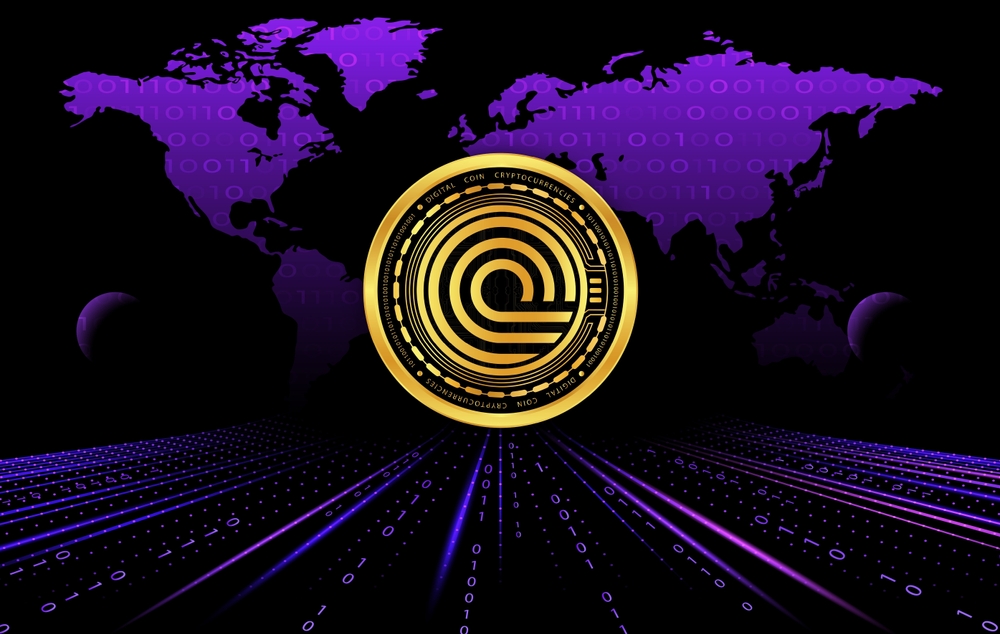Table of Contents
ToggleIntroduction
Polygon’s Privado ID is a cutting-edge digital identity solution that aims to revolutionize how we manage and verify our online identities. This innovative system uses blockchain technology and zero-knowledge proofs to provide users with a secure and private way to prove their identity online. Privado ID allows individuals to control their personal information and share only what’s necessary, enhancing privacy while reducing the risk of identity theft.

The system works by letting trusted organizations issue verifiable credentials to users. These credentials can then be used to prove things like age, employment status, or education level without revealing unnecessary details. For example, a person could prove they’re over 18 without sharing their exact birthdate.
Privado ID is built on open standards and is designed to work across different platforms and applications. This makes it a versatile tool for various industries, from finance to healthcare. Its focus on user privacy and data protection aligns with growing concerns about online security and personal information control.
Key Takeaways
- Privado ID uses blockchain and zero-knowledge proofs for secure digital identity verification
- Users can control their personal information and share only necessary details
- The system is versatile and can be used across various industries and applications
Understanding Polygon’s Privado ID

Privado ID is a powerful digital identity solution that builds on Polygon‘s blockchain technology. It offers a secure way to manage and verify identities online.
The Framework of Privado ID
Privado ID uses a Triangle of Trust model. This model has three key parts: the Identity Holder, the Issuer, and the Verifier. Each part plays a vital role in creating a secure identity system.
The Identity Holder is the user who owns their digital identity. The Issuer creates and signs credentials. The Verifier checks if the credentials are real and valid.
Privado ID follows W3C standards. This means it works well with other systems. It also uses zero-knowledge proofs to protect user privacy.
Polygon’s Role in Digital Identity
Polygon, now known as Privado ID, has made big steps in digital identity. The system is built on the iden3 protocol, which is open source.
Privado ID uses blockchain in two main ways. First, it creates secure signatures for credentials. Second, it allows for on-chain verification of these credentials.
The move from Polygon ID to Privado ID shows a focus on both on-chain and online data. This change aims to meet the growing need for better digital identity tools.
Privacy and Security Features

Privado ID uses advanced cryptography and gives users control over their data. It protects privacy while allowing secure identity verification.
Encryption and Zero-Knowledge Proofs
Privado ID uses zero-knowledge proofs to verify identity claims without revealing sensitive data. This cryptographic method lets users prove facts about themselves without sharing the actual information.
For example, a user could prove they are over 18 without showing their exact birth date. The system encrypts all data and communications.
Zero-knowledge proofs allow selective disclosure. Users choose what details to share in each situation. This limits data exposure and protects privacy.
User Control and Data Sovereignty
Privado ID gives users full control over their identity information. It follows self-sovereign identity principles.
Users store their own data and choose when to share it. No central database holds all the information. This reduces hacking risks.
People can revoke access to their data at any time. They can also update or delete information as needed.
The system lets users create different identity profiles for various purposes. This separation improves privacy across different apps and services.
Integration and Interoperability

Privado ID offers key features that enhance its usability across different platforms and blockchain networks. These capabilities make it easier for developers and users to work with the system in diverse environments.
Blockchain Interoperability
Privado ID works well with many blockchain systems. It can issue credentials with Merkle Tree Proof signatures that are stored on-chain. This allows for wide compatibility across blockchain networks.
The system is designed to be protocol-agnostic. This means it can function with both EVM and non-EVM blockchains. Such flexibility is crucial in the diverse world of Web3 technologies.
Privado ID’s approach to blockchain interoperability helps create a more connected digital identity ecosystem. It allows users to prove their identity across different platforms without repeated verification processes.
Cross-Platform Utility
Privado ID provides tools for developers that work on various platforms. These tools help create secure connections between apps and users.
The system uses W3C standards, making it compatible with many existing identity systems. This standardization improves its utility across different software environments.
Privado ID’s cross-platform features include a versatile query builder. This tool lets developers create dynamic queries for zero-knowledge proofs without deep technical knowledge. It makes integrating Privado ID into various applications much simpler.
Major companies are starting to use Privado ID. For example, Telefónica Tech has become a system integrator for the platform. This shows its growing acceptance in different industries.
Digital Identity Solutions

Privado ID offers innovative tools for secure digital identity management. It enables users to control their personal data while allowing trusted verification.
Verifiable Credentials and Wallets
Verifiable credentials form a key part of Privado ID’s digital identity system. These are digital versions of physical documents like IDs or diplomas. They’re cryptographically secure and can be stored in digital wallets.
Privado ID provides tools for developers to create identity wallets. These wallets let users store and manage their verifiable credentials. Users can choose which information to share and with whom.
The system uses blockchain technology to enhance security. This makes credentials tamper-proof and easy to verify without revealing unnecessary personal details.
Identity Verification and Trust Services
Privado ID includes robust identity verification features. These help confirm that users are who they claim to be. The process is designed to be both secure and respectful of privacy.
Trust services are built into the Privado ID framework. These create a “Triangle of Trust” between credential issuers, holders, and verifiers. This structure ensures that all parties can rely on the authenticity of shared information.
The system uses zero-knowledge proofs. This advanced cryptography allows users to prove facts about themselves without revealing the underlying data. It’s a powerful tool for preserving privacy in digital interactions.
Polygon Labs and Telefónica Partnership

Telefónica Tech has joined forces with Polygon Labs to advance digital identity solutions in Europe. This partnership aims to develop and implement innovative technologies for secure digital identities.
Collaborative Initiatives
Polygon Labs and Telefónica are working together on digital identity proofs-of-concept. One key project is an age verification system for safe access to adult content and gambling platforms. The two companies are also looking into digital national identities and e-signature solutions.
They plan to create privacy-preserving loyalty programs. These initiatives will help meet the EU’s push for trusted digital identity wallets across member states. The partnership focuses on building secure, user-friendly systems that protect personal data.
System Integrator and Telefónica Tech
Telefónica Tech has become a system integrator for Polygon’s Privado ID platform. This role allows Telefónica to integrate Privado ID’s technology into its existing systems and services. The company will use its TrustOS blockchain service to support this integration.
As a system integrator, Telefónica Tech will help other businesses adopt and use Privado ID. This move will speed up the use of verifiable credentials in Europe. It combines Telefónica’s tech expertise with Polygon’s blockchain-based identity solutions.
Applications and Use Cases
Privado ID offers versatile solutions for identity verification and management. It has wide-ranging applications in both public and private sectors, enhancing security and efficiency.
Public and Private Sector Applications
Privado ID enables secure digital national identities. This system can streamline public services and e-signature solutions.
Government agencies use it to verify citizens’ ages for voting or accessing age-restricted content. Private companies employ Privado ID for content certification and digital document management.
The platform’s blockchain-based technology ensures data integrity. This makes it ideal for sensitive applications like healthcare records or financial services.
Identity and Access Management
Privado ID excels in identity and access management across industries. It allows users to control their personal data and share only what’s necessary.
Companies can use it to manage employee access to digital resources. This reduces the risk of unauthorized entry to sensitive systems.
The technology supports single sign-on solutions, simplifying user experiences. It can integrate with existing systems, making adoption easier for organizations.
Privado ID’s zero-knowledge proofs enable privacy-preserving identity checks. This feature is particularly valuable in financial services and online marketplaces.
Compliance and Regulatory Landscape
Privado ID faces important regulatory considerations in Europe. The platform must align with new digital identity rules and certification standards.
European Digital Identity Regulation
The European Commission is developing new rules for digital identity. These will impact how Privado ID operates in the EU. The regulations aim to create a secure European digital identity system.
Key aspects include:
- Cross-border recognition of electronic IDs
- Standardized digital wallets for citizens
- Privacy protections for personal data
Privado ID will need to adapt its technology to comply. This may involve changes to its decentralized identity platform.
Certification Standards
To gain trust, Privado ID must meet certification standards. These show the platform follows best practices for security and privacy.
Common certifications include:
- ISO 27001 for information security
- eIDAS for electronic identification
- GDPR compliance for data protection
Earning these certifications can help Privado ID build user trust. It also makes the platform more attractive to businesses and governments.
Privado ID may need to update its systems to meet these standards. This could involve improving data protection measures or enhancing security protocols.
Potential Challenges and Considerations
Privado ID faces key issues related to security and identity verification. These challenges could impact the system’s integrity and user trust if not properly addressed.
Sybil Attacks and Airdrop Abuse
Sybil attacks pose a significant threat to Privado ID. In these attacks, bad actors create multiple fake identities to gain unfair advantages. This can lead to airdrop abuse, where individuals claim rewards multiple times.
Verifiable credentials help combat this issue. They make it harder to create fake identities. But determined attackers may still find ways around these safeguards.
Privado ID developers must stay vigilant. They need to constantly update their security measures. This helps maintain the system’s integrity and fairness for all users.
Misinformation and Fake Identities
Fake identities on Privado ID can spread misinformation rapidly. This threatens the trust users place in the system.
The blockchain-based identity helps verify users. But it’s not foolproof. Bad actors might still create convincing fake profiles.
To fight this, Privado ID could implement stricter verification processes. They might require more proof of identity from users. But this could make the system less user-friendly.
Finding the right balance between security and ease of use is crucial. It’s a ongoing challenge for Privado ID developers.
The Future of Identity in Web3
Web3 identity solutions like Privado ID are changing how we think about digital identity. They offer more control and privacy for users while enabling new decentralized applications.
Evolving Identity Frameworks
Identity frameworks in Web3 are becoming more user-centric. Privado ID uses zero-knowledge protocols to protect privacy. This allows users to prove things about themselves without revealing unnecessary data.
Identity wallets will become common. These digital wallets will store verified credentials securely. Users can selectively share only the info needed for each interaction.
Smart contracts will play a bigger role in identity systems. They can automate verification processes and manage access to tokenized assets. This makes identity more programmable and flexible.
The Role of Identity in Decentralization
Strong digital identity is key for decentralized systems to work. It lets users interact directly without centralized middlemen. Privado ID enables trusted relationships between apps and users through verifiable credentials.
Blockchain-based identity helps power new decentralized services. Users can carry their identity across different platforms. This reduces dependence on big tech companies for login and verification.
Identity infrastructure will need to scale. Projects like Polygon’s Avail can help by providing data availability for identity systems. This allows them to handle more users and credentials.
Technological Advances in Identity Verification
Privado ID brings cutting-edge solutions to identity verification. It uses advanced cryptography and new verification protocols to enhance security and privacy.
Innovations in Cryptography
Privado ID leverages zero-knowledge proofs to protect user data. This cryptographic method allows users to prove they have certain information without revealing the information itself.
Zero-knowledge proofs work by creating mathematical proofs. These proofs show that a statement is true without sharing the underlying data.
For example, a user could prove they are over 18 without revealing their exact age. This protects privacy while still meeting verification needs.
Privado ID also uses blockchain technology to secure identity data. The blockchain creates an unalterable record of identity claims and verifications.
Advancements in Verification Protocols
Privado ID introduces new ways to verify credentials. The system allows for secure sharing of verified information between users and services.
One key advance is the use of decentralized identifiers (DIDs). DIDs give users control over their digital identities. Users can choose which information to share and with whom.
Privado ID also supports selective disclosure. This lets users share only the specific details needed for a given situation.
The system includes features for credential revocation and expiration. This ensures that outdated or incorrect information doesn’t remain in use.
Frequently Asked Questions
Polygon ID offers identity verification and credential management solutions. Users can integrate this technology into various applications and platforms.
How can I use Polygon ID for identity verification?
Polygon ID allows secure identity verification through verifiable credentials. These credentials are cryptographically signed and follow W3C standards. Users can present proofs of their identity without revealing unnecessary personal information.
Where can I find documentation for integrating Polygon ID?
Developers can access comprehensive Polygon ID documentation online. The docs cover topics like issuing credentials, verifying proofs, and using the Polygon ID wallet.
What steps are involved in acquiring a Polygon ID?
To get a Polygon ID, users need to download the Polygon ID wallet app. It’s available for both Android and iOS devices. After installation, users can receive and manage their digital identity credentials within the app.
Which applications support the use of Polygon ID?
Many decentralized applications (dApps) on the Polygon network support Polygon ID. These apps can use Polygon ID for user authentication, age verification, and access control to specific features or content.
How can I find the chain ID specific to the Polygon network?
The Polygon network chain ID is 137 for the mainnet. This information is essential when configuring wallets or smart contracts to interact with the Polygon network.
Where can I access the source code for Polygon ID on GitHub?
Polygon ID’s source code is available on GitHub. Developers can explore the codebase, contribute to the project, and implement Polygon ID features in their own applications.












